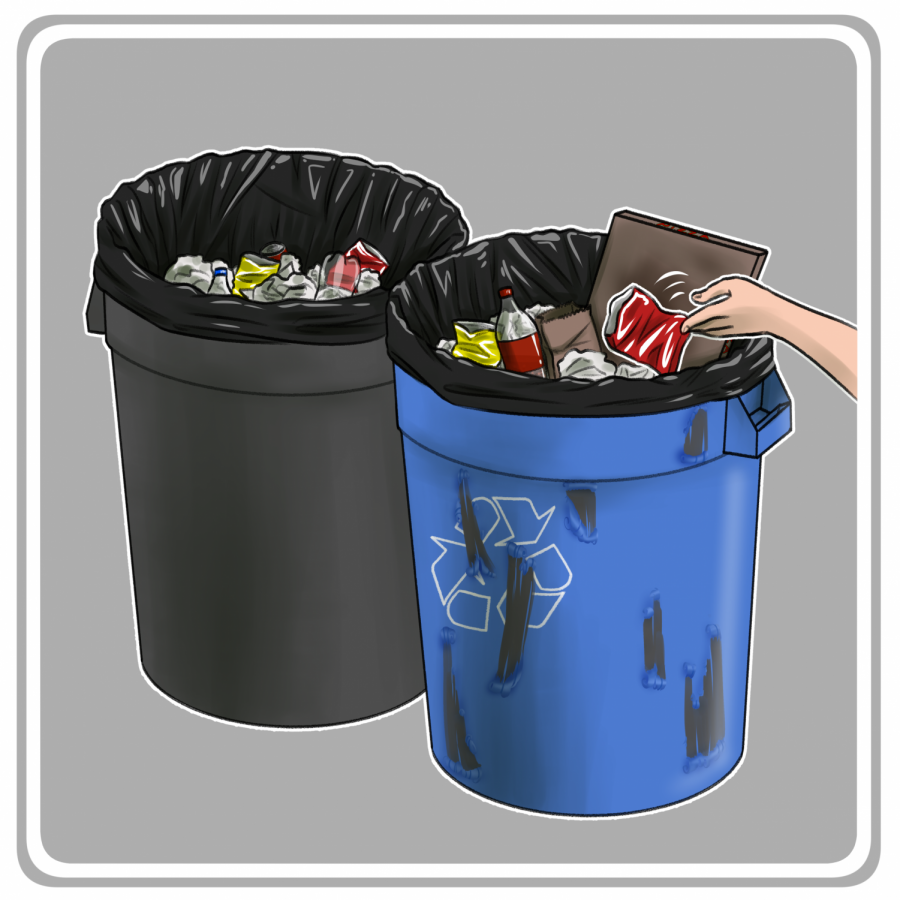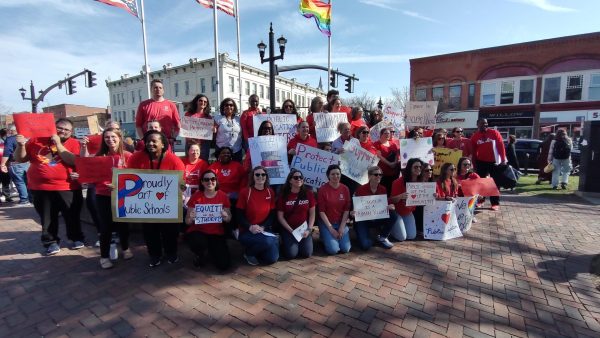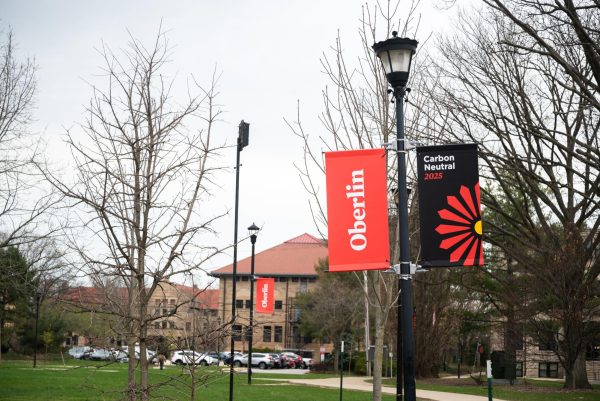Opt-in Policy, Recycling Pledge Now Part of Oberlin City Recycling
In spring 2020, Oberlin ended recycling for many common items in order to accommodate social distancing measures for sanitation workers.
In March 2020, the City of Oberlin suspended recycling collection services due to COVID-19, but resumed collection on an opt-in basis on Nov. 9, 2020. The new program dramatically decreases the scope of recycling in Oberlin, as it shifts to an opt-in system, removes most large-scale recycling services, and changes the way it provides services to the College.
Currently, the College is not making use of the opt-in recycling service, although students living off-campus and in Village Housing can opt-in to the curbside recycling program. Recycling bins located in campus buildings and dorms are emptied into the trash.
Jeff Baumann, City public works director, states that without a dedicated point person — referring to vacancies in sustainability positions — the College is unlikely to find and manage an alternative recycling system. Individuals opting-in for recycling must first sign a pledge to strictly recycle rinsed cans and #1 and #2 plastic bottles and jugs, as well as clean paper and corrugated cardboard.
Since altering the scope of recycling and shifting to an opt-in system, no recycling delivery has incurred a contamination fee — a vast improvement compared to the 65 percent of recycling residents that incurred the fee prior to this policy. A recently created contamination fee of $100 is borne by the City if over 15 percent of a load is non-recyclable. Baumann attributes the inability of the City to resume mixed-recyclable dumpster services to contamination issues.
“Because recycling services are offered free to the community, some people, we believe, were using those essentially as a second trash container, sometimes mistakenly, sometimes intentionally, just to move their stuff out,” he said. “And we believe that that’s happening in the commercial sector as well.”
Studies in Professor of Environmental Studies and Psychology Cynthia Frantz’s class on community based social marketing found that a large amount of recycling contamination in Oberlin is a result of misinformation. People are often unsure of what is recyclable, or otherwise partake in “wishful recycling.”
“The biggest obstacle that emerged was people just not being sure what to recycle,” Frantz said. “And it was interesting, because I am a very well-informed person who’s highly motivated to do things the right way, and I was wrong about what was recyclable. And I was putting things in the recycling bin that were not actually recyclable.”
Frantz said that the recycling pledge is rooted in many psychological principles that should reduce incorrect recycling practices. A little over half of the former customers now participate in the recycling program, saving money for the City at the cost of higher carbon emissions and more waste entering the landfill.
Recycling was initially halted in 2020 due to public health measures put in place during the pandemic. Waste collection crews split into two teams that operated on alternating schedules for the sake of social distancing. When the measures were lifted, recycling became entirely subscription-based. The City now limits mixed-stream recycling to 64- and 96-gallon carts for residential and commercial customers, respectively. Recycling dumpsters are only available for corrugated cardboard.
During the initial suspension of recycling, the City took the opportunity to carefully reassess costs of the recycling program. From April 2019 to January 2020, the City’s recycling processor, Republic Services, had more than tripled the previous processing fee, boosting it to a rate of $70 per ton. This raised the City’s fee from an average of $2,000 to an average of $10,000 per month, including an additional fee for any load contaminated by more than 15 percent.
These changes were largely driven by China’s “National Sword” policy, enacted Jan. 1, 2018, which banned imports to Chinese recycling plants, where the majority of U.S. recycling used to end up. According to Baumann, unless global markets drastically shift, Oberlin is unlikely to rescind the new policies in the short term.
“Ultimately, these decisions at the municipal level are being driven by global commodity markets, which … [we have] no control over,” Baumann said. “If we want to continue to provide some level of service, we need to provide that in the most sustainable way — including economically.”
As the fate of Oberlin’s recycling system remains unclear, some students expressed disillusionment with the effectiveness of recycling and are more concerned with other aspects of the waste stream. College third-year Mia Veissid, a member of the Resource Conservation Team, suggests that a problem of greater importance is the proliferation of waste entering the waste stream.
“I really think it’s all about reducing waste, and that feels like a much harder problem to tackle, because you can’t just throw it in a bin and be like, ‘We recycle, yay,’ — like we get a sticker for doing the right thing,” Veissid said. “We really need to be conscious of not using any single-use plastics, reusing things, not throwing anything away, composting — all the dining halls should be composting.”







